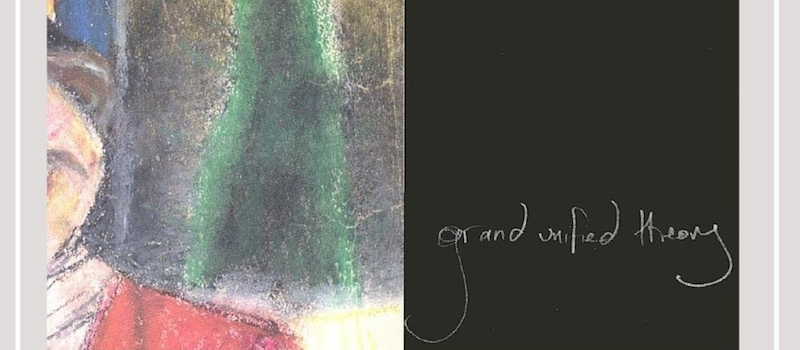If rock bands were butterflies, it would tough to pin down Grand Unified Theory, a young Berkeley, Ca. band fluttering in invisible paths that are remotely familiar but also difficult to predict or map. The band is too loose and frayed around the edges to be claimed under the ever-popular banner of emo, yet their songs have a calculated dissonance to them that makes them too complicated to be written off only as some post-Pavement collegiate indie act. The quiet-loud, soft-hard dynamics of the Theory’s self-titled debut call to mind the complex signatures of another California band, A Minor Forest, as much as they do Rodan or early June of ’44, but the inviting recklessness of the disc distances it from the careful and plotted navigation of post-rock.
So? What is Grand Unified Theory? Well, for those of us drawn like magnets to guitar-driven indie rock that sways between the somber and the sounds of fury, it’s a new voice with which you best familiarize yourself.
In the most reductive sense, the theory that unifies the 10 songs on the band’s Undetected Plagiarism debut is that the listener should never see what’s lurking around the corner, never expect what noise in the background is going to come rumbling to the forefront. Examples? During a calm verse, a soft guitar line that slithers alongside spare percussion doesn’t fall apart, as you’d expect, but instead erupts and then expands (“Unclaimed Song #1”). A sample of chanting protestors leads to a plodding pseudo-military drum roll march, only to be led astray by singer/guitarist Jerry Chen’s warbling yells and a spacey hint of keyboards (“That Beautiful Parade Down Market Street”). A song introduced with a somber piano bridge fades into a distortion-drenched verse, only to fall back into a valley of calm and then come full circle and explode again (“She Turned Him/On On/Him,” whose title alone merits a bit of applause). Not only do these details keep you on your toes, they keep the more predictable moments of the record feel as if they are merely transitions, pauses between more adventurous explorations.
But, for all of the times that Grand Unified Theory seems to enjoy turning listeners’ expectations and anticipations on their ears, the band also knows how to put aside the tricks and simply craft enveloping songs. “Camera Eyes (A Phone Conversation)” and the album-closing “Return to Zero” may be two of the more accessible examples of this, balladish pieces where the only thing that supports Chen’s choppy guitar chords and reflective voice are subtle keyboards. (Or check out the aforementioned “Unclaimed Song #1,” where dissonance and minor scales are used to expand the scope of more traditional, tension-building verses.)
Elsewhere, the band puts aside its penchant for more textured fare, displays its clear love of more straight-forward rock icons like the Pixies (see “Remarks Made During the Final Interview”) and puts together songs that know how to make the most of the dynamics of more traditional verse-chorus-verse molds. It’s here — and on songs like the record’s two “Unclaimed Songs” and “Epilogue (Parts 1 and 2)” — where the chemistry between Chen, bassist/guitarist Diego Montero, and drummer Julie Macon pays off.
For a band just starting to make some noise, the fact that the musicians can not only fall into line together but also manage to do it with inventive, hard-to-define fare is grand, indeed. – Delusions of Adequacy, Jan. 19, 2004




